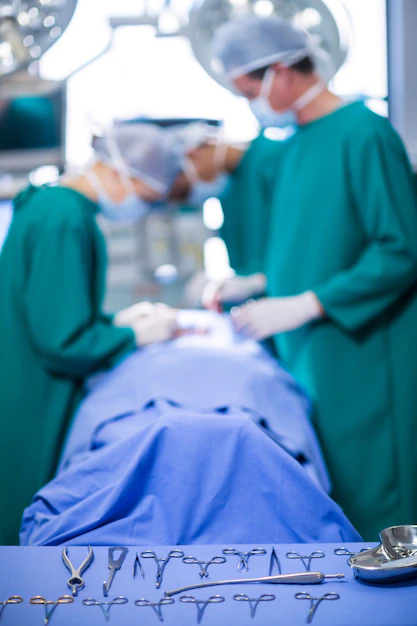Phone : +919538699915
UROLOGY SURGERIES
Laparoscopic surgery is commonly used in urology to treat various urological conditions. Some of the urological laparoscopic surgeries include:
1. Laparoscopic Nephrectomy: This procedure involves the removal of a kidney, either for kidney cancer, kidney donation, or other medical reasons. Laparoscopic nephrectomy typically results in a shorter recovery period and less postoperative pain compared to traditional open surgery.
2. Laparoscopic Prostatectomy: Laparoscopic or robotic-assisted laparoscopic prostatectomy is used to treat prostate cancer. Surgeons use small incisions and specialized instruments to remove the prostate gland while preserving surrounding structures.
3. Laparoscopic Pyeloplasty: This procedure is performed to repair a blockage or narrowing of the renal pelvis, which can lead to kidney problems. Laparoscopic pyeloplasty aims to reconstruct the normal drainage of urine from the kidney to the ureter.
4. Laparoscopic Cystectomy: In cases of bladder cancer, laparoscopic cystectomy may be performed to remove part or all of the bladder. It can be combined with urinary diversion techniques to reroute urine.
5. Laparoscopic Adrenalectomy: This procedure involves the removal of one or both adrenal glands, often to treat adrenal tumors or conditions like Cushing’s syndrome. Laparoscopic techniques offer a minimally invasive approach for this surgery.
6. Laparoscopic Varicocelectomy: For men with varicoceles (enlarged veins in the scrotum), laparoscopic varicocelectomy can be used to improve fertility by reducing blood flow abnormalities in the scrotum.
7. Laparoscopic Ureteral Surgery: Laparoscopy can be used to treat various ureteral conditions, such as ureteral strictures or obstructions. It allows for precise repair or reconstruction.
8. Laparoscopic Stone Surgery: In some cases, laparoscopy may be used to access and remove kidney stones that cannot be treated with less invasive methods.
Laparoscopic urological surgeries offer advantages such as reduced scarring, shorter hospital stays, and faster recovery times compared to open surgery. However, the specific procedure used depends on the patient’s condition and the surgeon’s expertise. It’s essential to discuss treatment options with a urologist to determine the most suitable approach for your particular case.

CHAITANYA MEDICAL CENTRE.All Rights Reserved © 2026







